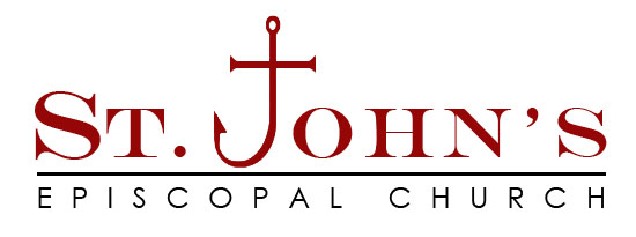Becket and the Trinity
Dear Friends,
Although often not noticed by average Episcopalians, Trinity Sunday is one of the Principle Feasts of the Episcopal Church. The early church did not set aside a particular day to celebrate the Trinity. Thomas Becket was consecrated Archbishop of Canterbury in 1162 on the Sunday after Pentecost and one of his first acts was to declare that Sunday a Feast for the Holy Trinity. The festival became quite popular and was eventually added by Pope John XXII in 1334 to the Roman Catholic celebrations.
There is an interesting bit of historical drama, which was told in the 1964 movie “Becket” (the all star cast included Peter O’Toole, Richard Burton, John Gielgud and others). The movie is a classic of the genre of period, faith based dramas that were popular at the time. It won an Academy Award for best screen play, Golden Globes for best film and best actor, and many other awards.
As is still the practice today in England, the Archbishop of Canterbury was nominated by the reigning monarch, at that time Henry II. He nominated Becket in late May of 1162 as a layperson. At the time, Henry II was in conflict with the pope over who should control the church in England and Becket had been a loyal supporter of the authority of the crown. No doubt, Henry saw this as a good way to solidify his control of the church.
Becket was ordained a priest on June 2, 1162 and the next day consecrated Archbishop. This apparently worked quite a conversion on Becket and he became wholly devoted to his faith and the church. By October 1163, he was in open conflict with Henry and after eight turbulent years, he was assassinated in 1170 by men loyal to King Henry.
It sems likely to me, though there is no way to prove this from known history, that Becket’s making the day of his consecration, on the Sunday after Pentecost, “Trinity Sunday” was a declaration that his loyalty would be to the teaching of the church rather than the power of the throne.
So what does this mean for us today as we celebrate the Trinity? Doctrine is not popular today – often seen as a source of division and conflict rather than something that draws us closer to Jesus and encourages us in love and service. While I certainly agree that correct doctrine is not the center of salvation, I also believe that it does matter. After all, what we believe about God tells us much about how we believe God would have us behave.
When someone claims that they “believe in God” or pray, it matters what God they believe in and what do they mean by prayer. That is doctrine.
How does the Trinity set us apart as Christians? How can we joyfully affirm what doctrine teaches us while refusing the arrogance and division that have too often accompanied careful doctrine? Sunday, June 12, 10 a.m., in-person and livestream!
This column appeared in the June 12, 2022 edition of St. John’s eNews. Click here for the complete issue.
If you are reading this at a different time, you may click here for the current eNews.
